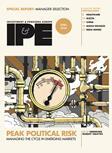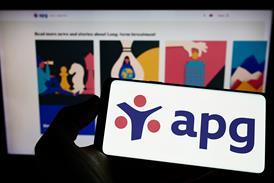As companies become increasingly global in their outlook, it makes sense to coordinate employee benefits programmes, taking into account custom and practice in each territory and utilising benefit practices such as global pooling and benchmarking. Which is how global consulting networks of actuarial and employee benefits professionals have a role to play.
Danny Wilding of Barnett Waddingham in Europe, who is chairman of the Euracs network, explains the attraction of the network idea: “We offer member firms the opportunity to share and learn from the experiences of other members in other countries. Similar issues are often being tackled in different countries and valuable lessons can be learned from understanding the different approaches adopted. From our point of view, a network will enable us to win more clients at home who have an international reach, as they are reassured by the knowledge, as international issues arise they can be referred to local experts. Also, there are business referrals between members where the need for cross-border advice arises.”
Currently, only a small percentage of multinational companies participate in global risk pooling. Wendi Pickerel, international director with the ASINTA network, based in Seattle, says that is going to change, “as more companies understand the returns they can achieve by establishing and actively managing these risk pools. Moreover, pension plan portability, combined with upcoming changes to international accounting standards will force even hesitant companies to pursue an international approach to their benefits programmes.”
Melvin Nightingale of the International Benefits Network (IBN), whose target clients are SMEs in the high tech area, says some members of the network offer specialist expertise, which can also add value, for example, on multinational pooling, expatriate services, and administration systems: “Members of the network agree to a code of conduct and are subject to regular peer reviews, to ensure that a quality service is provided. IBN itself is a non-profit making company, financed by its members. Clients pay no added-value costs for the network services.”
What makes a good network? Christine Whatley of the MGAC network says the typical attributes of a good network are: “Being well placed to take account of national characteristics and customs, as well as applicable laws and regulations, both for international and local staff. The combination of a client co-ordination consultant directly understanding the client’s group needs, and local expertise providing a national perspective provides the best of both worlds, not always available through other multinational providers.”
Olivier Picard, consultant with Milliman Global says the difference between Milliman and the traditional format of the global firm is that: “Our member firms are independently owned. In addition, because member firms are selected by Milliman Global based on the quality of service they provide in their own right and an existing track record of success, we are able to ensure that we can provide the best possible service.”
Pickerel says member firms are selected carefully by the entire network’s membership after a lengthy review process. “ASINTA’s members each speak their own home country language as well as English, meet in person twice a year, and have agreed to a level of responsiveness on information inquires and service requests. “In total, these characteristics create a global community of consultants that have strong professional ties to one another as well as established lines of communication. For member firms, this provides a solid resource for country-specific expertise which they are assured will respond to their clients’ emerging needs.”
Effective information flow and knowledge transfer is certainly an important ingredient for a network to add real value. Whatley says MGAC keeps “frequent regular direct contact between consultants at member firms without going via a secretariat as many networks do”. The resultant flow of information on new developments within firms or countries is then likely to be more up-to-date and relevant: “Historically, this has been particularly pertinent for those members who offer international consultancy advice, but more recently, for example, the worldwide review of accounting standards has been a topic where all member firms can gain from sharing knowledge and ideas. This directly benefits MGAC clients as they can obtain quality local advice from around the world whilst only working with their local adviser.”
ASINTA recently carried out a Global Benefits Strategies Survey of 75 multinational employers and Pickerel notes that: “Time and again when asked how they manage benefits aboard, the response was, ‘We don’t handle that. We let them (country managers) handle that’. If employers remain unwilling to look out across their benefit programmes globally, they will continue to only manage the parts and remain unaware of what the whole picture means.”












No comments yet